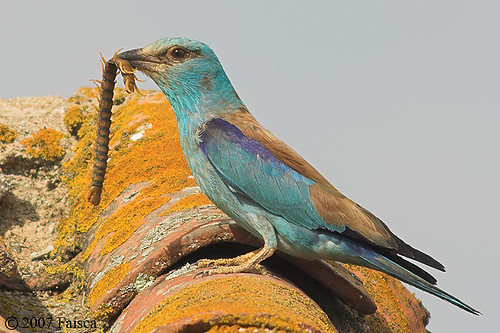It’s that time again. Last year when I did this, I’d been birding in Spain in the spring and then the Galapagos and Ecuador in the autumn. This year has been less dramatic—no albatrosses or toucans—but I did see some great stuff in Crete in April.
First, though, some local stuff. There have been Little Grebes in the local park this year, I think for the first time, and they successfully raised a chick, so that was good. And also in the park, a Mandarin Duck (an Asian species, but there’s quite a large breeding population in the UK now). Back in February, this Stock Dove was the year’s only new bird for my garden list:
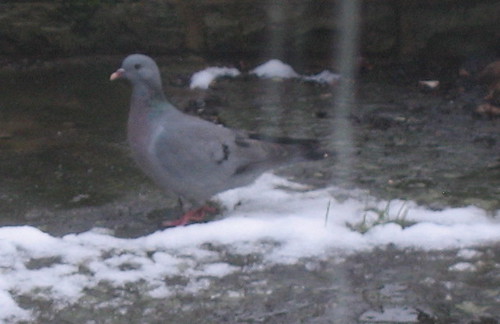
And there were also a couple of birds which I haven’t had in the garden for a long time; I heard a Tawny Owl in July, and perhaps the most exciting of the lot, I saw a House Sparrow on the bird feeders in August. Sadly, she was the only one.
On, then, to Crete. Crete was pretty fabulous, bird-wise. Lots of stuff, and some of it special. Apart from anything else, what could be nicer than being in the Mediterranean in the springtime? It’s nice just seeing all the common Mediterranean species like Crested Lark, Serin, and Sardinian Warbler:
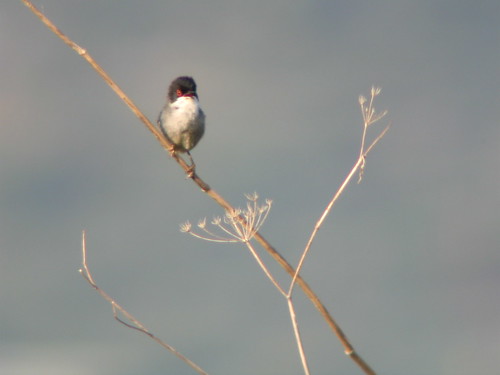
Then there were species I’d seen before, but not for a long time, or not very well, which I had great views of; like the amazing flock of Golden Orioles flying one by one up the valley above Paleohora, or the oh-so-elegantly coloured Blue Rock Thrush nesting in a cliff face I saw from about the same spot, or the Wryneck I eventually saw after about an hour spent wandering around the Lasithi Plateau, trying to track them down by their call. Or this Cirl Bunting, a bird I think I last saw at Mycenae when I was 18.
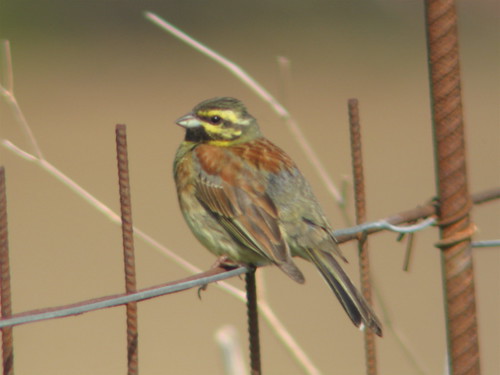
And Woodchat Shrike, Griffon Vulture, Squacco Heron and Purple Heron, which were all species I also saw last spring in Andalucia, but no less pleasing for all that.
I saw eight lifers in Crete, which I think is pretty good for a holiday in Europe. Any life tick is pleasing, but the least exciting would be Short-toed Lark (small, brown, distant; even the name is boring) and Ferruginous Duck (a good bird, but a very brief, distant sighting). Black-eared Wheatear [below] and Collared Flycatcher are both really attractive birds; Quail are famously skulking and difficult to see in Britain, so when a couple of them suddenly flushed out from almost under my feet it was a bit of a rush.
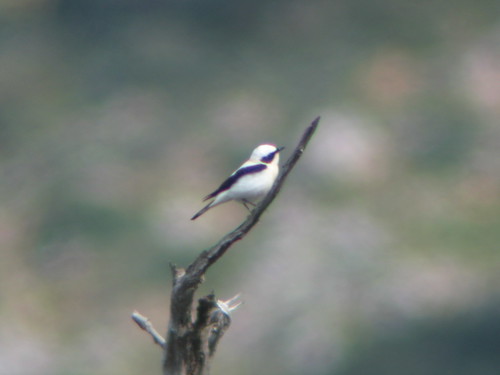
But my best photographic opportunity came at the reservoir at Ayia. A lot of the birds were remarkably approachable, I think because they were simply exhausted by migration. I got close to some commoner species, like Whinchat and Cuckoo, but the really amazing sightings were two species that are, normally, very difficult to see because they spend all their time lurking in deep vegetation. The first was a species I’ve seen before, but never expected to see as well as this: Little Bittern.
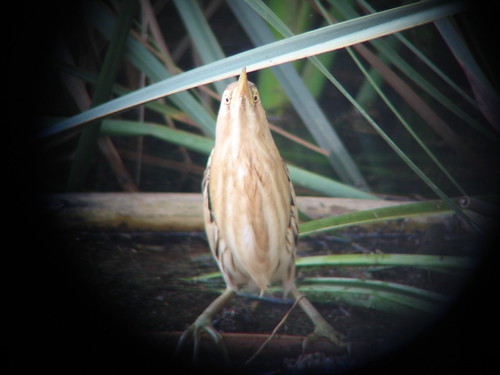
Both times I’ve seen them before, it was just a quick moment as a bird flew from one reedbed to another. I never expected to be able to approach one to about 25 feet, set up a telescope and take a picture. Even better, though, was another species, Little Crake. The bittern eventually, when I got really close, ducked into the reeds and stayed hidden. But the crakes just wandered around feeding at the water’s edge, blithely ignoring any birders nearby as though they were natural exhibitionists. I saw about eight individuals, and the only reason I didn’t get more good photos of them was that the little buggers never stayed still for a moment. Still, I’m particularly pleased with this one:
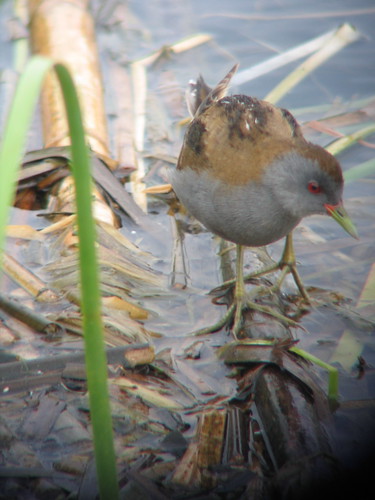
But even that wasn’t my bird of the year. My bird of the year was a European Roller. It’s big and colourful, I’ve wanted to see one ever since I had my first bird book—so probably for about 25 years now—and, just as icing on the cake, it’s even a rarity for Crete. I didn’t have my telescope with me when I saw it, so I couldn’t take a picture, but since it’s my bird of the year, here’s one taken by someone else:
» ROLIEIRO, posted to Flickr by sparkyfaisca.
